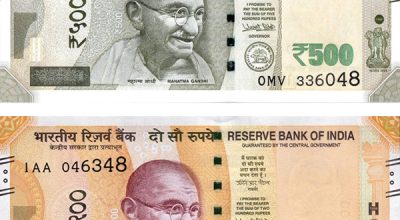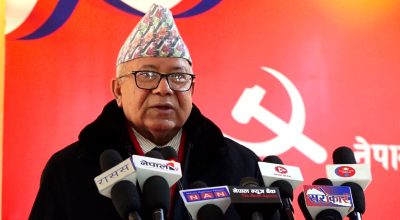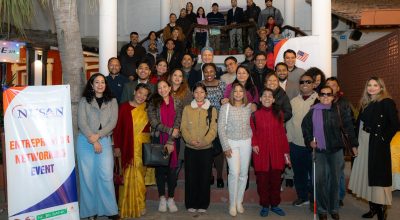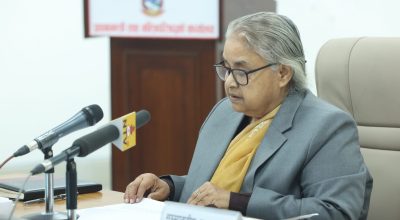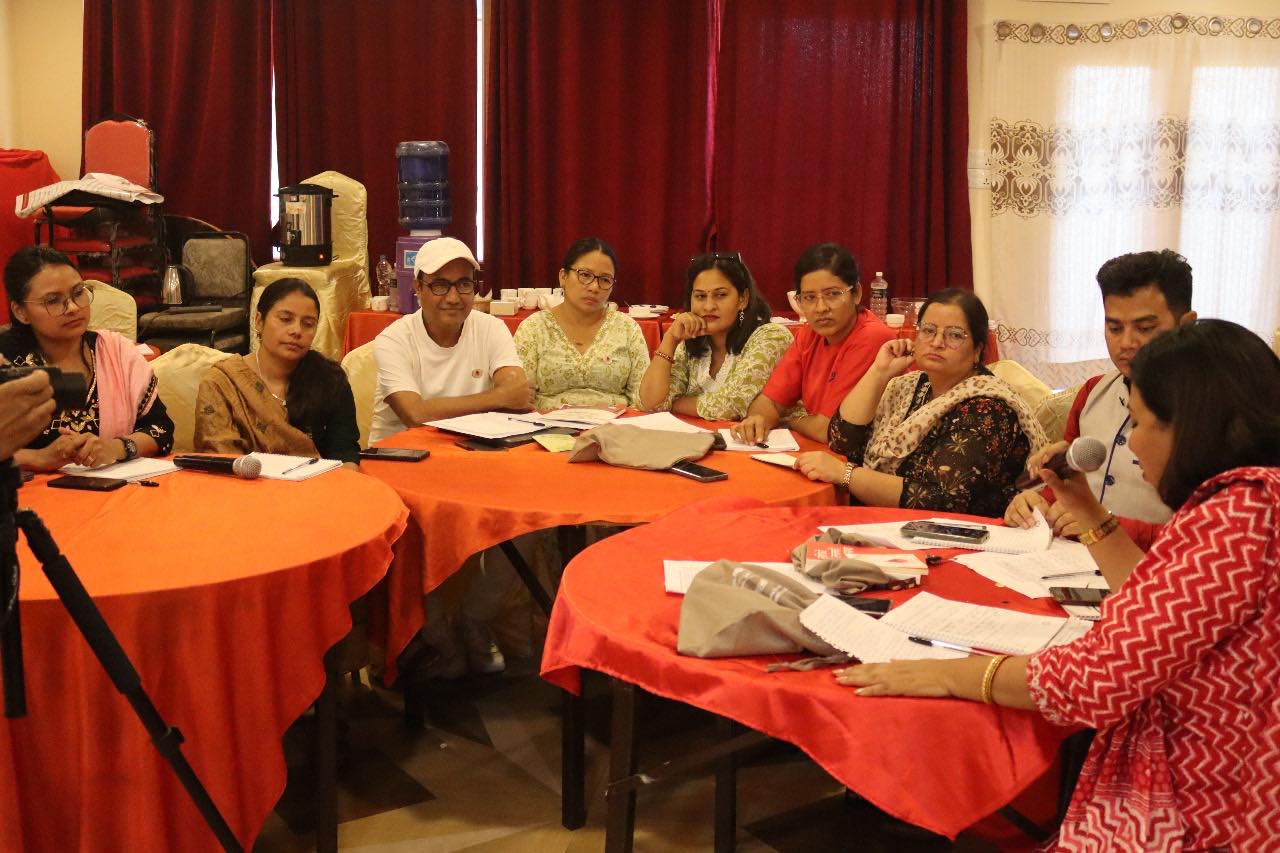
Kathmandu, Aug 3: Case I: At the age of four, she was startled to discover a bloodstain on her mother’s clothes. By 10, she found herself wondering why her close friend, who used to accompany her to school regularly, disappeared all of a sudden that lasted for fifteen days.
When she was 14, she found herself bleeding for the first time and was overwhelmed with confusion and tears. Her family, recognizing the situation, took her to a distant relative’s home for eleven days of isolation.
These early experiences are part of the story of a senior female journalist working in state-run media in the federal capital. She represents Lalitpur district.
Case II: During his childhood, it was not comfortable for him to go to bed unaccompanied by his mother for 4-5 days a month.
One day, his childhood friend with whom he used to have fun, and play together disappeared all of a sudden. He cried over the situation and started wandering here and there in the hope of finding her. He questioned it to the people around him but found no clear answers. Days later, the girl reappeared. This became a recurring pattern every month.
His sisters and female relatives often isolated themselves for certain days every month. At school, his female classmates would also miss classes regularly.
Case III: a journalist originally hailing from Sankhuwasabha district recalled the moment when she learned that her mother had turned ‘untouchable’. To see her mother bleeding heavily every month was frequent for her. The feeling was quite disturbing for her at a young age.
At the age of 13, she menstruated but was chased away from home to be locked up in somebody’s house. Though she had already migrated to an urban area from her home district in eastern Nepal, isolating girls whenever they first menstruated was so normal. Before this, she observed her elder sister leaving the home during the first menstruation and it was followed by her younger sister as well.
Case IV: She represents Dadeldhura. However, her accounts surrounding menstruation are less or more similar to the above-mentioned experiences. She recalled the moments she was isolated from the family during menstruation, was barred from seeing her elder brother and father, confining herself into a corner of the ground floor of her house for five days.
These journalists from various parts of the country had recently gathered in Chitwan for an orientation on dignified menstruation.
The orientation organised by the Radha Paduel Foundation: Global South Coalition for Dignified Menstruation under the Media Fellowship on Dignified Menstruation was themed ‘Dignified Menstruation is Everyone’s Business’.
According to author and rights activist, Radha Paudel, such practices all make up forms of menstrual discriminations that remain as one of the root causes of the formation and cultivation of unequal power relations.
Research suggests that menstruation discriminations exist everywhere in every society, but the forms are different. Women/menstruators are isolated from the family, prohibited from entering the kitchen, forced to quit schools, restricted from eating certain foods like dairy products, citrus fruits, and so on, barred from visiting places of worship, taking part in family rituals, stigmatized, have no or limited access to materials for the management of menstruation and the list of discriminations goes on, Paudel said.
Though survivors are much inconvenienced by such discrimination, the in-depth realization of its intensity and its significant impact on building the imbalanced power structure is missing, said the Madan-prize winner.
“Such practices prevent menstruators from becoming a complete human,” she argues.
According to Paudel, this breeds a feeling of inferiority among those facing discrimination from an early age, it has been internalized, socialized subsequently, and ultimately pushes survivors into a circle of discrimination, leaving a lifelong impact on them.
She underlines the need of defining the concept and practices of dignified menstruation essentially from a transformative, human rights, inclusion and feminist approach.
Rephrasing of Chhaupadi warranted
Paudel has concerns over the use of the word Chhapaudi as synonymous with the menstrual discriminations prevalent in western and far-western Nepal. This term simply translated to the ‘timing of menstruation’, but has been globalised to paint a ‘pathetic’ picture of the western and far-western Nepal in regard with menstrual discriminations.
Discriminations surrounding menstruation, a complete biological/natural phenomenon, are socially constructed, global, exist in every society. Only intensity is different.
As a rigorous researcher on the topic, Paudel concludes that such discriminations are ubiquitous and completely unjustified.
Menstruators must have space for following dignified menstruation practices and live with the restoration of full dignity along with easy access to safe and eco-friendly materials required to manage menstruation. Dignified menstruation-friendly infrastructures are equally needed to implement this approach. There should be no discrimination in between the five days (normally the days of menstruation) and 25 days (remaining days in a month) for a menstruator. She insists on building a dignified menstruation-friendly society, community, schools, family, state and the globe through combined efforts.
Thus, an end to all sorts of restrictions against menstruators is mandatory to build an egalitarian society as envisaged by international rights conventions and the Constitution of Nepal. “It is imperative to ensure that menstruators and non menstruators live with dignity in a regenerative society.” RSS #Nepal





